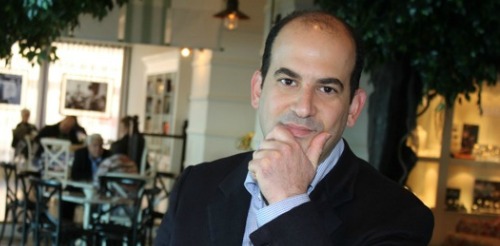
Long gone are the days when lonely entrepreneurs had to sit in the garage with their engineering buddies tweaking the next big startup company. A new trend in high-tech is accelerator programs, where groups of young companies work together side by side, sharing legal support, brainstorming capabilities, advice from successful entrepreneurs and some startup capital.
Y Combinator in the United States started the accelerator format in the mid-2000s, giving life and legs to hot high-tech companies like Reddit, Disqus and Scribd. The organization helps young entrepreneurs navigate through the process of building a company from a brilliant idea, giving them a large net of support.
“They are probably known as the first wave and put a lot of resources around the startup, to the entrepreneurs who may have a passion for what they are doing but lack experience to make it happen,” says Mitchell Golner, an angel investor in Israel. “It couples experience with raw talent — experienced people from industry with first-time entrepreneurs,” he tells ISRAEL21c.
The model has been replicated in several formats, and now the four-year tech accelerator DreamIt, a Forbes Top 10 accelerator program, has opened an Israeli-American chapter. Golner will be leading it and he is already scouting for young Israeli companies.
Wanted: five young startup companies from Israel ready to build the next big high-tech sensation in America.
Narrowing the market gap
Young Israeli entrepreneurs with great ideas don’t lack only support and experience; they are also separated from their target markets by thousands of miles.
“Israel is an economic island of seven million people and everyone knows that Israel isn’t the final market. Still it’s often the case that entrepreneurs in Israel get caught up developing this market. When it happens late in the process, they have to revamp their product and it’s problematic,” says Golner.
“I saw the way to grow companies would be to put them in a framework,” he says.
Intent upon linking Israeli high-tech talent with the talents and capital resources of the United States, he made a list of the best US tech accelerators and started meeting with them, checking off his list one by one. A match was made with DreamIt, which has chapters in Philadelphia and New York. Its partners had visited Israel previously and recognized the enormous potential.
“It’s only been in the States until now, with 64 companies,” says Golner. One of the DreamIt success stories, SCVNGR, is led by a 21-year-old CEO who recently raised $15 million.
Golner and his team in Israel are accepting applications from young entrepreneurs, subject to a screening process. He predicts that the ventures will lead to job creation in both countries.
Getting a jumpstart
“Basically this accelerator program aims to reduce the market gap by exposing the startup to the US market at an early stage,” Golner explains. “They will spend one month in Israel and three months in the US, where they are close to US customers and mentors, and can get exposed to US capital … and have an easier time adapting to their large target market, to jumpstart.”
DreamIt’s founders were eager to give tools to entrepreneurs in the “startup nation,” and welcomed a joint project with Golner, who was doing some angel investing in Israeli startups.
“For a number of years we have wanted to bring the same benefits to the Israeli startup community and we are glad that now there is the right mix of team and timing,” DreamIt founder David Bookspan commented.
When the five Israeli companies are chosen, the startup capital of about $25,000 for each will come from US angels. Applications are open and angels are waiting.












